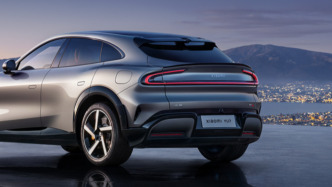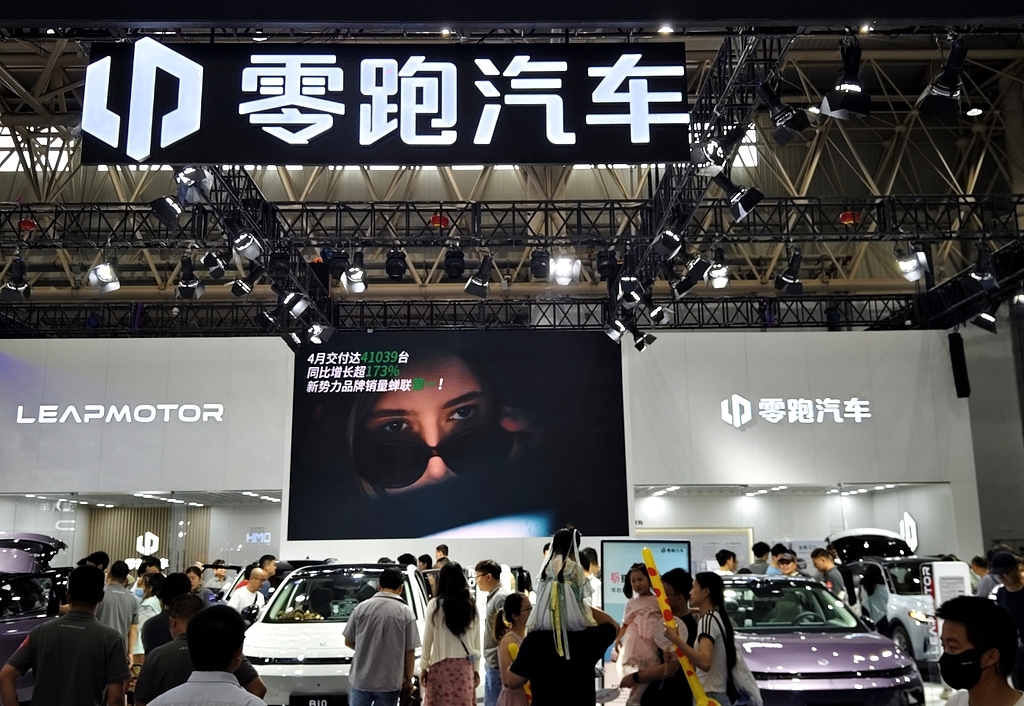
Recently, an automotive self-media discovered during a track test that the brake pads of Xiaomi's latest popular model, Xiaomi YU7, caught fire under high temperatures.
The live evaluation showed that after the YU7 Max version completed a single lap of 2 minutes 18.66 seconds, the fastest lap in its class, the brake disc temperature soared to over 600°C, and open flames appeared during inspection in the maintenance area.
On June 28, Xiaomi Auto responded that in the test video, the Xiaomi YU7 Max completed one warm-up lap and one flying lap at the Tianjin V1 racing track, and then parked directly under extreme circumstances without performing a cooling lap. The high temperature caused the organic material of the brake pad to catch fire, but the braking system as a whole did not have any brake failure problems, and its functions were intact and in normal use.
In addition, the test vehicle did not use the "Energy Recovery Enhancement" function in the Xiaomi YU7 Max Master Mode. This function will enhance the energy recovery intensity under track conditions and reduce the load on the mechanical braking system. Even if the ABS locks, it can still provide a maximum of 0.2G braking energy recovery, effectively reducing the occurrence of extreme situations where the braking system temperature exceeds 600°C.
According to Xiaomi Auto, YU7 is mainly positioned for urban driving. It cannot be driven on a professional track without professional upgrades and maintenance. "If you try to drive on a professional track, you also need to upgrade the vehicle's tires, braking system and heat dissipation, use the master mode and turn on the energy recovery enhancement function to avoid safety hazards under extreme conditions."
Xiaomi said that when driving on the track, vehicles often need to frequently perform emergency braking at ultra-high speeds, and the load on the brake system will be much higher than that in daily driving. Under such conditions, the temperature of the brake disc will rise sharply, and if effective heat dissipation is not taken, it will cause the material to catch fire. At the same time, as a medium-to-large SUV, the Xiaomi YU7 is heavier than smaller SUVs. At the same time, the high power brings a faster track speed, and the heat generated by the brake system during fierce braking will be more obvious. Therefore, effective heat dissipation is very critical and basic track driving common sense.
Xiaomi said that YU7 Max uses low-metal brake pads, which are made of metal fibers, abrasives, resins and other organic materials. Resins and other organic materials produce polymer branch cracking reactions at high temperatures (generally greater than 300°C) to produce some gases, such as water, carbon monoxide, carbon dioxide, alkyl, aromatic gases, etc. Some flammable gases may produce short-term open flames at high temperatures (generally brake disc temperature > 600ºC) and in an environment with sufficient oxygen. This is a normal physical phenomenon, but the braking performance will not fail.
According to Lei Jun, YU7 is positioned as a "luxury high-performance SUV" and has launched three different versions. The standard version has a range of 835 kilometers, ranking first among all medium and large pure electric SUVs and also first among all four-wheel drive pure electric SUVs. The acceleration from 0 to 100 km/h is 3.23 seconds, the comprehensive power reaches 508kW (691 horsepower), and the maximum speed can reach 253km/h.
Previously on June 26, Xiaomi YU7 officially announced the price: starting at 253,500 yuan, and officially opened for pre-order at 10 pm that day, triggering a buying frenzy.
According to official data released by Xiaomi, YU7 received over 200,000 orders within 3 minutes (editor's note: pay a 5,000 yuan deposit, which will be automatically locked and non-refundable after 7 days), and over 289,000 orders within an hour. According to the latest data, 18 hours after the launch, the number of locked orders for Xiaomi YU7 (editor's note: locked orders mean that the deposit is non-refundable and waiting for official production) has exceeded 240,000.


